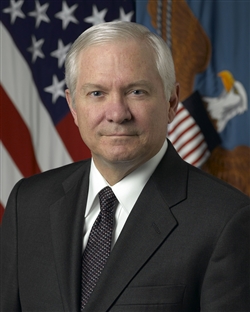Spaghetti with meatballs
Export Control Reform
When I was a young engineer, I spent some time developing software for use by other engineers. One old geezer (probably in his 40s back then) told me that whatever I did, I should avoid "spaghetti code" in my work. What in the world is that? It is the tendency by some software developers to create too many branching statements, "do-loops," and other complicated logic in programming. When one tries to create a flow-chart from such software, the lines begin to look like spaghetti on a plate.
 Export control in the nuclear industry is just that: spaghetti with a few meatballs. The origins of this mess come from the Atomic Energy Act Section 57b (see below). This single paragraph puts five different departments squarely into the business of handling export control. Each of these departments created its own unique regulations regarding export control:
Export control in the nuclear industry is just that: spaghetti with a few meatballs. The origins of this mess come from the Atomic Energy Act Section 57b (see below). This single paragraph puts five different departments squarely into the business of handling export control. Each of these departments created its own unique regulations regarding export control:
- The Department of Energy uses 10CFR810
- The Department of State uses 22CFR123
- The Nuclear Regulatory Commission uses 10CFR110
- The Department of Commerce uses15CFR744
- The Department of Defense uses (well, so far, I can't find the DOD regulations...)
Each of the regulations claims a slightly different space of control, but they overlap and keep the regulations vague enough to capture any issue that might come along. Roughly, the issues in nuclear export can be divided into three areas:
- Special Nuclear Material: This is basically uranium and plutonium, although I suspect that thorium would eventually be included as well.
- Knowledge: Any instructions, drawings, information that might help someone build, operate, or maintain a nuclear facility.
- Other materials: Any materials that might help someone build, operate, or maintain a nuclear facility, such as zirconium tubing for fuel, or the stainless steel vessels in reprocessing facilities.
You take these three technology areas and add FIVE different agencies and you get spaghetti with meatballs. This dish not only increases cost and complexity for companies trying to do their work, the government has a hard time getting this right. A real-life, frightening example: In 1993, a used car/scrap metal dealer in Idaho managed to end up purchasing a major portion of a nuclear reprocessing plant being scrapped at the Idaho National Laboratory. Through a series of screw-ups throughout the government, this dealer nearly ended up selling both the reprocessing equipment and the plans to build it to a foreign government. The only thing that stopped it were the alert officials in Britain who notified the Nuclear Regulatory Commission of the issue.

Gates
U.S. Defense Secretary Robert Gates gave a speech in April 2010 about export control and the issues in the current system. One quote from his speech sums up much of the reality of export control in this country: Frederick the Great's famous maxim that "he who defends everything defends nothing" certainly applies to export control,
Gates' proposal:
- A single export-control list will make it clear to U.S. companies which items require licenses for export and which do not. This single list, combined with a single licensing agency, would allow us to concentrate on controlling those critical technologies and items-the "Crown Jewels"-that are the basis for maintaining our military technology advantage, especially technologies and items that no foreign government or company can duplicate. Items that have no significant military impact, or that use widely available technology, could be approved for export quickly. We envision a more dynamic, tiered control system where an item or technology would be "cascaded" from a higher to a lower level of control as its sensitivity decreases.
- A single licensing agency, which will have jurisdiction over both munitions and dual-use items and technologies, will streamline the review process and ensure that export decisions are consistent and made based on the real capabilities of the technology. This agency would also reduce exporters' current confusion over where and how to submit export-license applications, as well as which technologies and items are likely to be approved. The Obama administration is currently preparing options for the agency's location, and I anticipate a presidential decision later this spring.
- The coordination of our currently dispersed enforcement resources by one agency will do a great deal to strengthen enforcement, particularly abroad, as well as coordination with the intelligence community. Those who endanger our troops and compromise our national security will not be able to hide behind jurisdictional uncertainties or game the system. Violators will be subject to thorough investigation, prosecution, and punishment severe enough to deter lawbreaking.
- A single, unified IT infrastructure will reduce the redundancies, incompatibilities, and waste of taxpayer money that our current system of multiple databases produces. For example, a single online location and database would receive, process, and help to screen new license applications and end-users.
Gates' proposal has potential to both improve security and reduce cost and complexity-a major breakthrough for many industries, not just nuclear. It is imperative, however, that the government (both congress and the president) do this the right way and not create a SIXTH agency that has to run back to the other five. It is also critical that this agency have the resources and the tools to manage the volume of issues that arise in this area. We in the nuclear industry must watch the developments and make sure that whatever is created both enhances security and streamlines the process.
Atomic Energy Act Section 57b: "It shall be unlawful for any person to directly or indirectly engage or participate in the development or production of any special nuclear material71 outside of the United States except (1) as specifically authorized under an agreement for cooperation made pursuant to section 123, including a specific authorization in a subsequent arrangement under section 131 of this Act, or (2) upon authorization by the Secretary of Energy after a determination that such activity will not be inimical to the interest of the United States: Provided, That any such determination by the Secretary of Energy shall be made only with the concurrence of the Department of State and after consultation with the Nuclear Regulatory Commission, the Department of Commerce, and the Department of Defense."

Harding
Margaret Harding has almost 30 years of experience in the nuclear industry in technical design, licensing, and quality issues. She worked for GE-Hitachi for 27 years with positions of increasing responsibility, leading to vice president of Engineering Quality. Two years ago, she left GE-Hitachi to start her own consulting business to help companies with business ventures in the nuclear industry. She is a guest contributor to the ANS Nuclear Cafe.

